NEXT-GEN ENGAGEMENT
Upholding our community responsibility
Highlights
New admissions pathway for First Nations, Inuit and Métis students
Concordia introduced the university-preparatory Kaié:ri Nikawerá:ke Indigenous Bridging Program to help Indigenous students gain the prerequisite courses needed to apply for a BEng degree. “Kaié:ri Nikawerá:ke” is a Kanien’kéha term that means “the four winds” or “the four directions.”
Through this initiative by the Office of Indigenous Directions, eligible First Nations, Inuit and Métis peoples who lack the required engineering prerequisites will be able to enrol in math and science courses. To facilitate their transition into undergraduate studies, they will also follow university skills courses designed by the Student Success Centre and participate in events at the Otsenhákta Student Centre. In many remote communities, certain courses are not offered to students due to a lack of teachers, leaving students unable to complete their high school diplomas and move on to CEGEP or university.
The creation of the program is one of the steps outlined in Concordia’s Indigenous Directions Action Plan, which provides concrete actions to decolonize and indigenize the university.
Concordia prof explores the gender gap in engineering
As a young engineer, Ann-Louise Howard, MA 13, PhD 22, assistant professor in the Department of Applied Human Sciences, did not enjoy the work in the male-dominated profession and ultimately left the field. She now says her early experience led to a deep curiosity about the work environment’s impact on people, and she eventually devoted her doctoral thesis to studying women engineers’ workplace experiences.
Howard’s thesis work opened a window into the sometimes dangerous, covert, gendered dynamics of engineering that help maintain the status quo. She found that while many women navigate their gendered environment well, it can have a profound effect on them.
Black Perspectives Office awards three new fellowships for 2023
Graduate students Anthony Mclachlan, Anick Jasmin and Dalia Elsayed were the 2023 recipients of research fellowships from Concordia’s Black Perspectives Office (BPO). “The research fellowship was created as a tangible means of fostering Black flourishing and promoting the richness and breadth of Black knowledges, skills and experiences,” says Maurice Riley Case, manager of the BPO.
Mclachlan’s research looks at institutions that regulate and define the mainstream social order. Jasmin’s research considers the reasons Black Haitian women are underrepresented in science, technology, engineering and math (STEM). And Elsayed’s doctoral research seeks to understand how higher education institutions in Canada contribute to the construction of Blackness, from a Black feminist perspective.
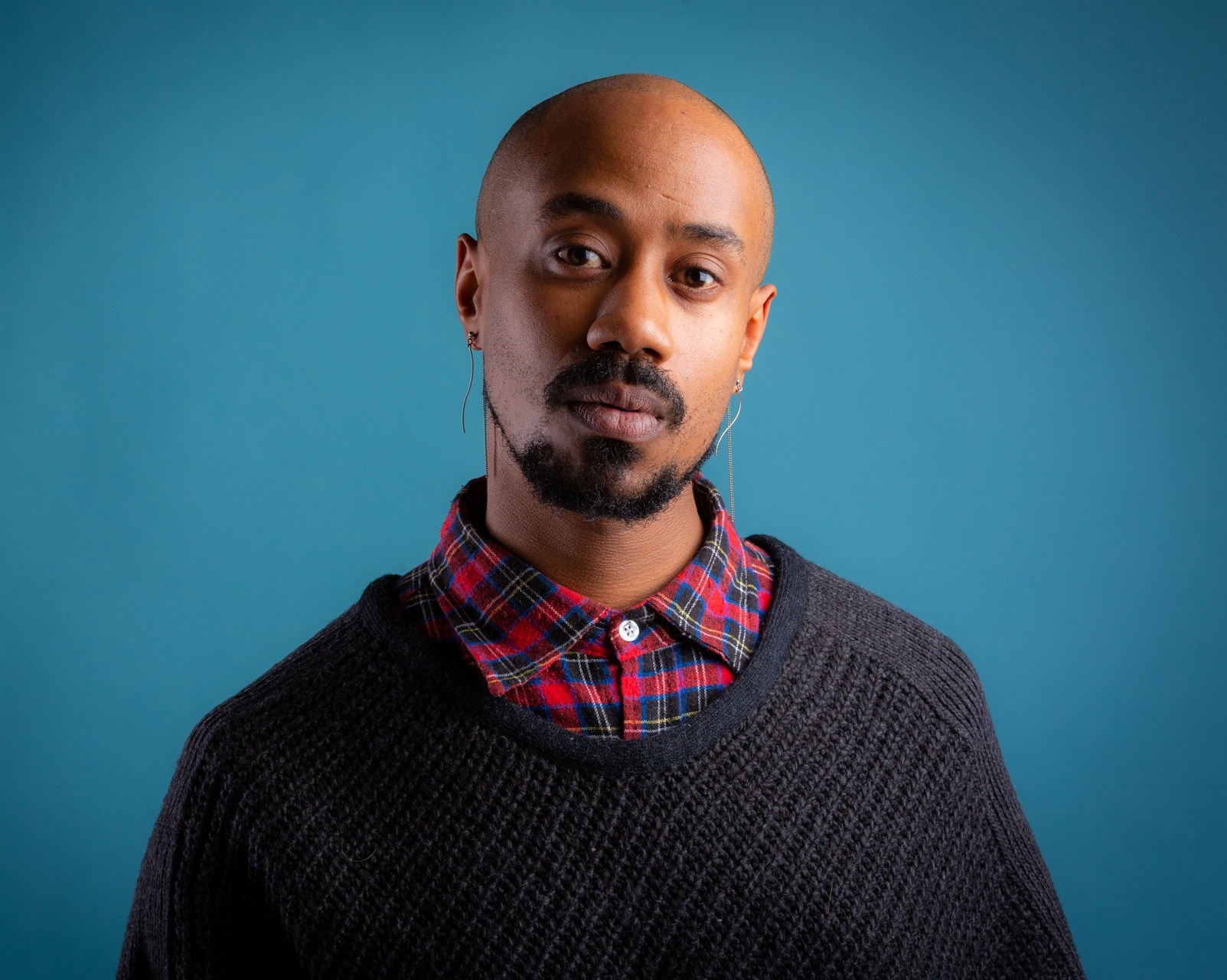 Anthony Mclachlan
Anthony Mclachlan
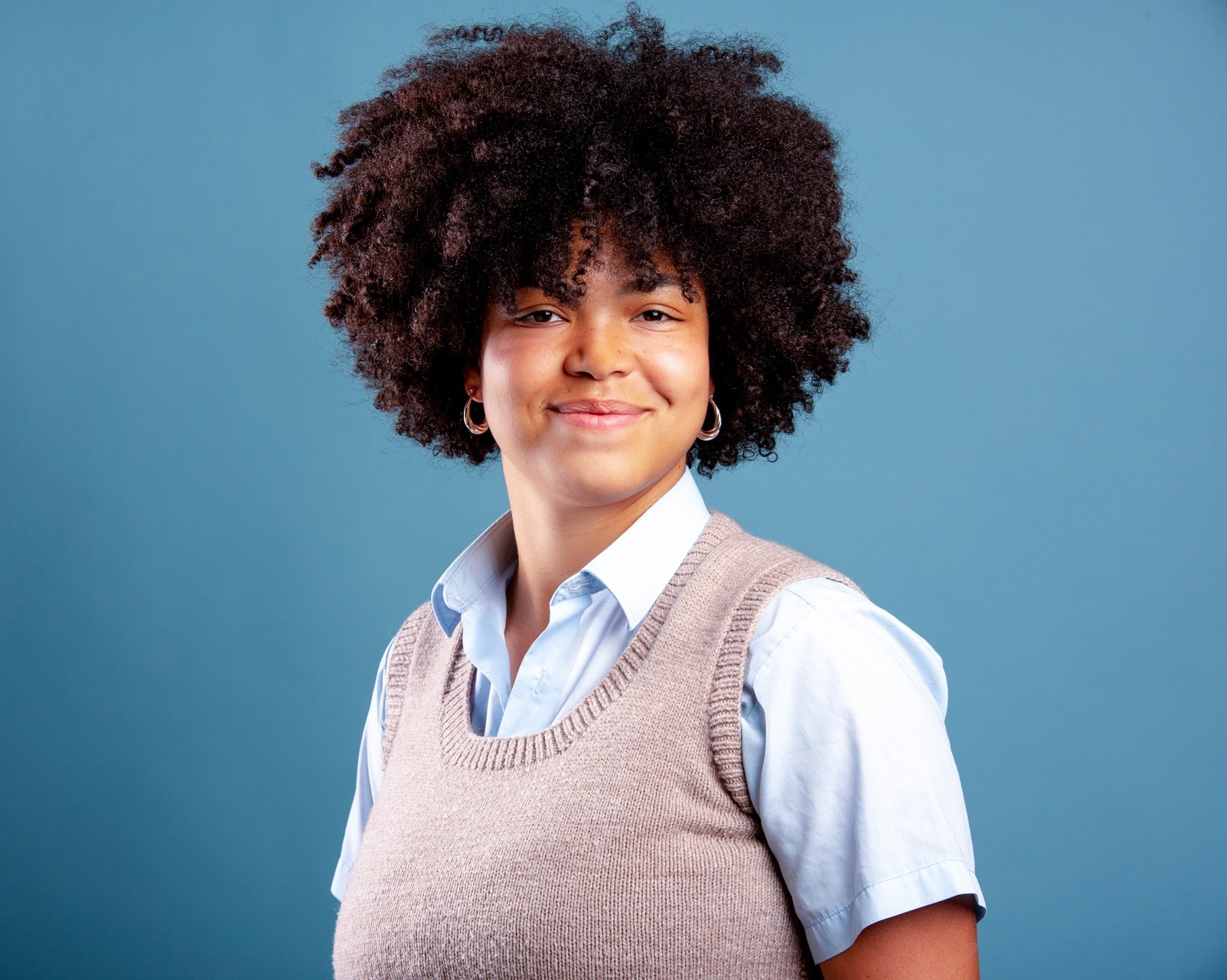 Anick Jasmin
Anick Jasmin
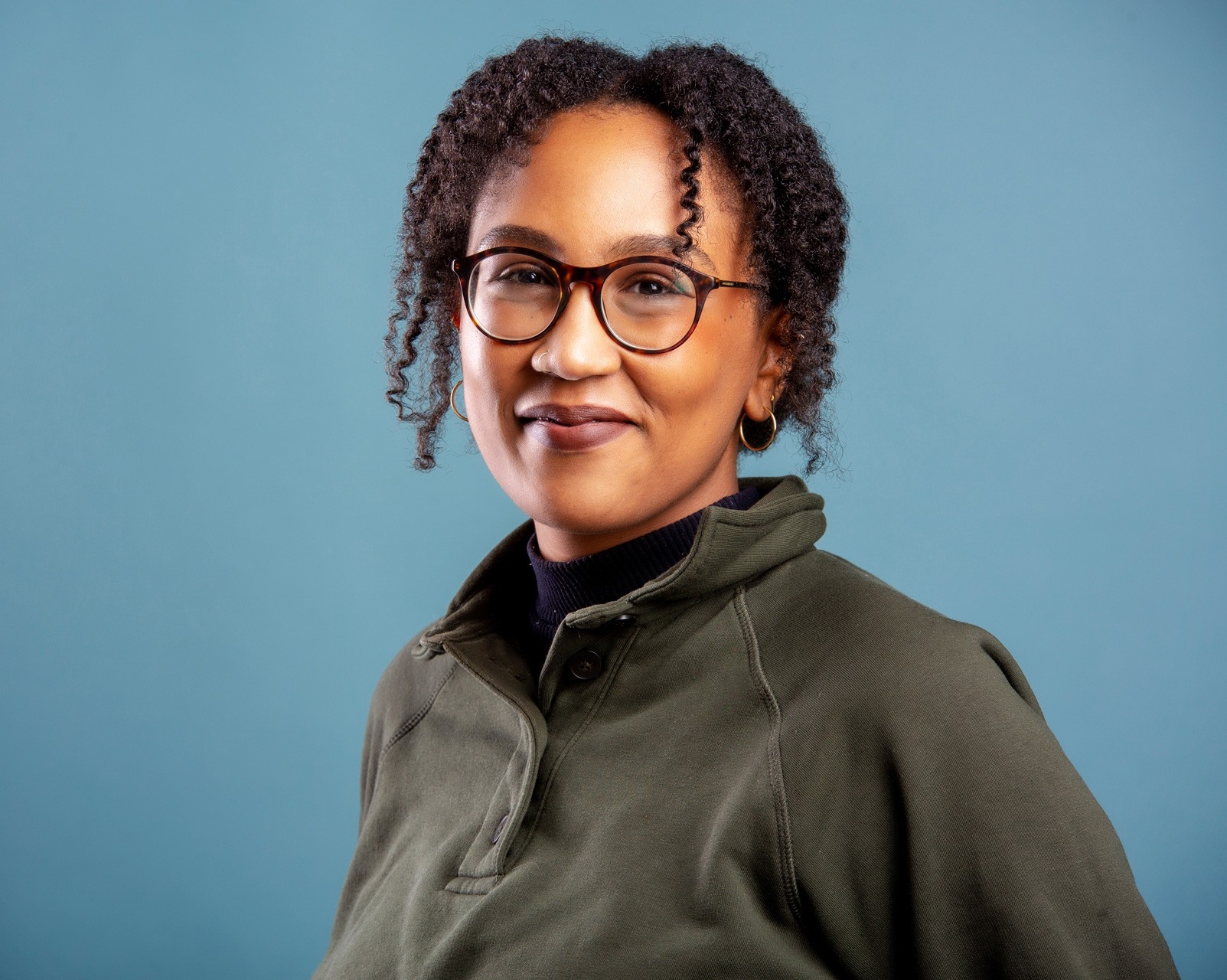 Dalia Elsayed
Dalia Elsayed
Harambec: Reviving the Black Feminist Collective
A new community-based project in collaboration with Concordia aims to restore “the tradition of Black Feminist organizing at Concordia that bloomed in the ’70s and ’80s,” says one of its creators, Marlihan Lopez, undergraduate program and outreach coordinator at the Simone de Beauvoir Institute. Harambec: Reviving the Black Feminist Collective will provide resources for and by Black women and gender-expansive people in the areas of teaching, experiential learning, research, professional development, mentorship and more.
The name “Harambec” is a portmanteau of harambee, the African principle of self-help, and Quebec. It is intended to represent the daily challenges that African-descended women face in the province.
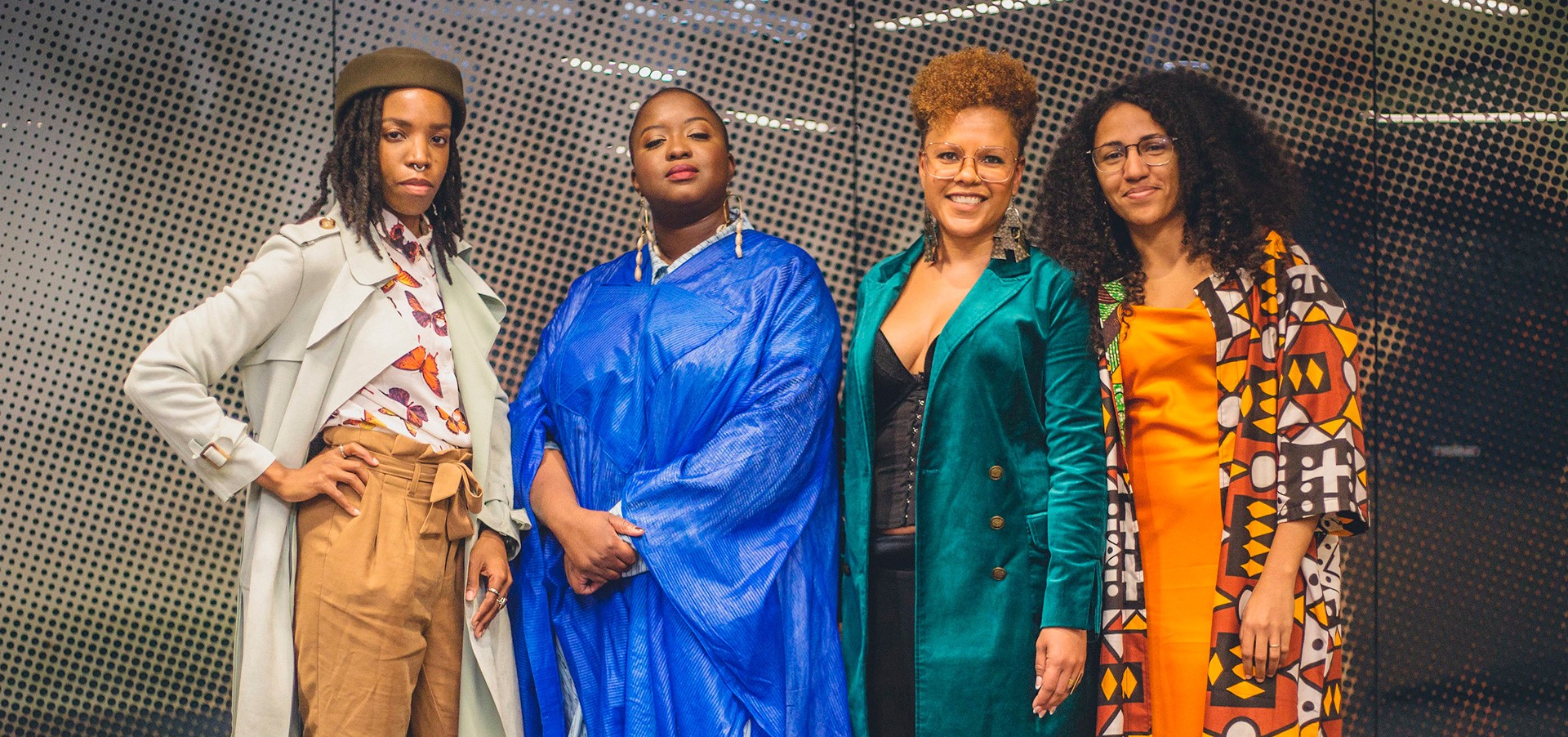 From left to right: Pauline Lomami, Marie Dasylva, Marlihan Lopez and Jade Almeida.
From left to right: Pauline Lomami, Marie Dasylva, Marlihan Lopez and Jade Almeida.
Initiative establishes innovative partnerships in Africa
The Concordia Africa Initiative seeks to establish relationships and learn from Africa through unique collaborations that focus on youth employability and entrepreneurship. Of all the world’s continents, Africa has the youngest population, with more than 60 per cent aged 25 or younger. By 2030, it is estimated that young Africans will constitute 42 per cent of global youth.
“Concordia has placed Africa at the heart of its international relations because of the endless opportunities for innovative collaborations,” Graham Carr explains. “Like Africa, Concordia is young, diverse and brimming with talent who will have a profound and exciting impact on the world.”
Interuniversity cohort installs temporary artworks in Griffintown
Commuters and passersby of Montreal’s newly launched light-rail Réseau express métropolitain (REM) were able to enjoy the installation of four temporary public artworks at the Griffintown neighbourhood’s Place des Aiguilleurs. The REM-financed project resulted from a collaborative effort by students in a Concordia summer course in public art and sustainability.
“We’ve had a lot of fun so far; the group has been fantastic,” says artist Yann Pocreau. He joined Concordia studio arts associate professor Kelly Jazvac and assistant professor Juan Ortiz-Apuy to mentor 19 students from the four major Montreal universities — Concordia, UQAM, McGill and Université de Montréal.
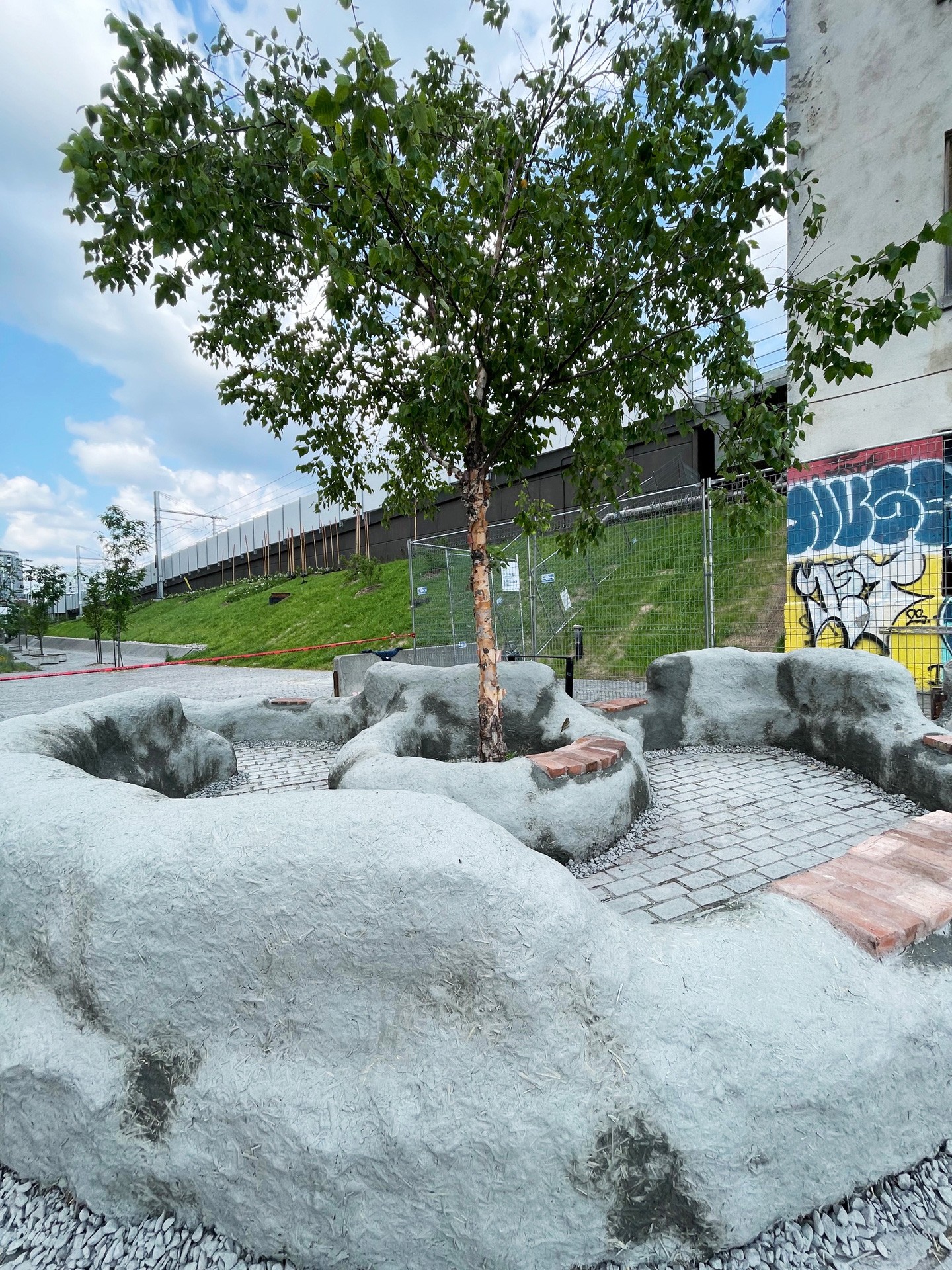 Concordians’ public artworks in Griffintown.
Concordians’ public artworks in Griffintown.
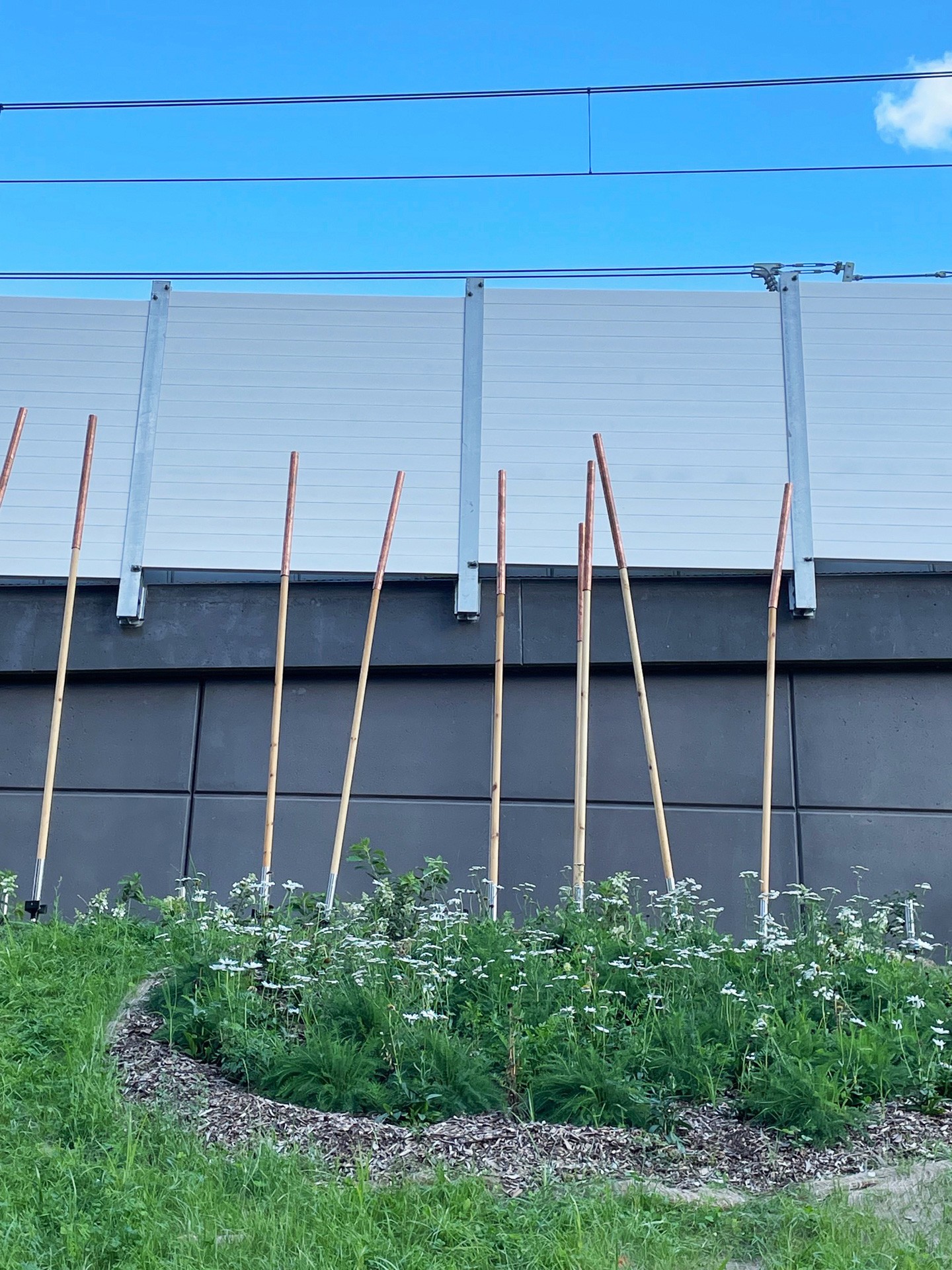
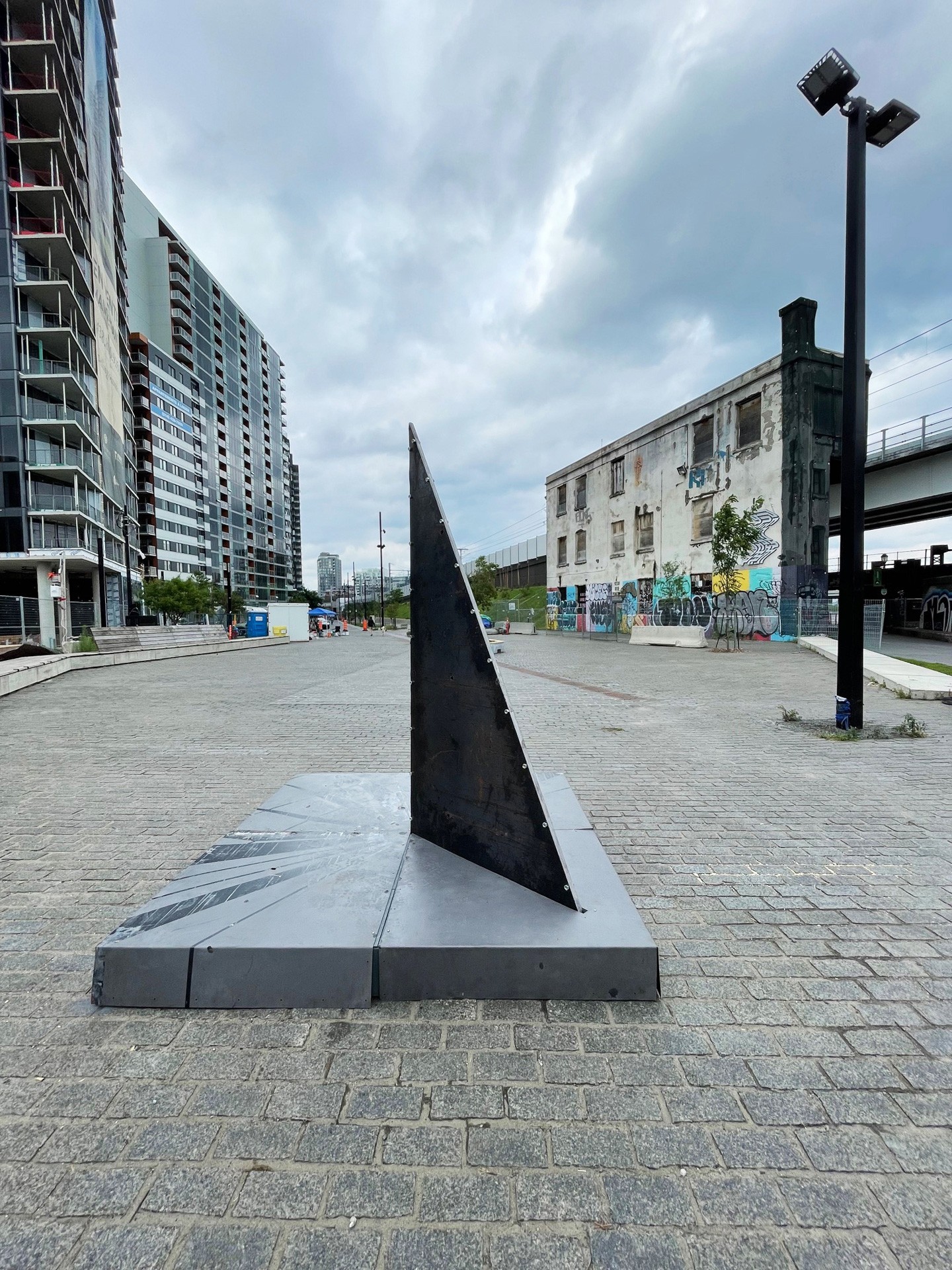
Canada Council Art Bank selects 3 Concordia artists
In celebration of its 50th anniversary in 2023, the Canada Council Art Bank announced the acquisition of 72 new works by emerging and established artists from across Canada. Three of the selected works are by Concordia fine arts graduates and artists from the university’s Art Volt Collection (AVC): Dayna Danger, MFA 17, Louis-Charles Dionne, BFA 17, and Laïla Mestari, BFA 17.
“The AVC is a launch pad for our recent fine arts alums,” says Annie Gérin, dean of the Faculty of Fine Arts. “I’m thrilled to see that their talent and hard work are being recognized at this stage of their career.”
Recent postdoc Léuli Eshrāghi is MMFA’s 1st curator of Indigenous arts
Léuli Eshrāghi, a former Concordia Horizon Postdoctoral Fellow, became the first curator of Indigenous arts at the Montreal Museum of Fine Arts (MMFA). In this groundbreaking role, Eshrāghi is responsible for the development and realization of exhibitions that showcase the exceptional work of Indigenous artists from Quebec, Canada and around the world.
Eshrāghi is a member of the Sāmoan clans Seumanutafa and Tautua with a multifaceted background as a Sāmoan, Persian, Cantonese and European author, artist, researcher and curator. In addition to their curatorial duties, Eshrāghi will conduct crucial research into Indigenous arts and develop cultural mediation activities catering to a wide range of audiences.
Commemorating Canada’s largest student anti-Black racism protest
Concordia President Graham Carr, Anne Whitelaw, provost and vice-president, academic, and Angélique Willkie, special advisor to the provost on Black integration and knowledges, unveiled a plaque to commemorate the Henry F. Hall Building as the location of Canada’s largest student protest against anti-Black racism. The event was held February 6, the anniversary of the 1969 Sir George Williams University student protest.
Carr had earlier issued an apology on behalf of the university for the subsequent arrest of 97 students, which had dire consequences on the lives of Black and Caribbean students and their supporters who stood up to the systemic racism they experienced at Sir George Williams University.
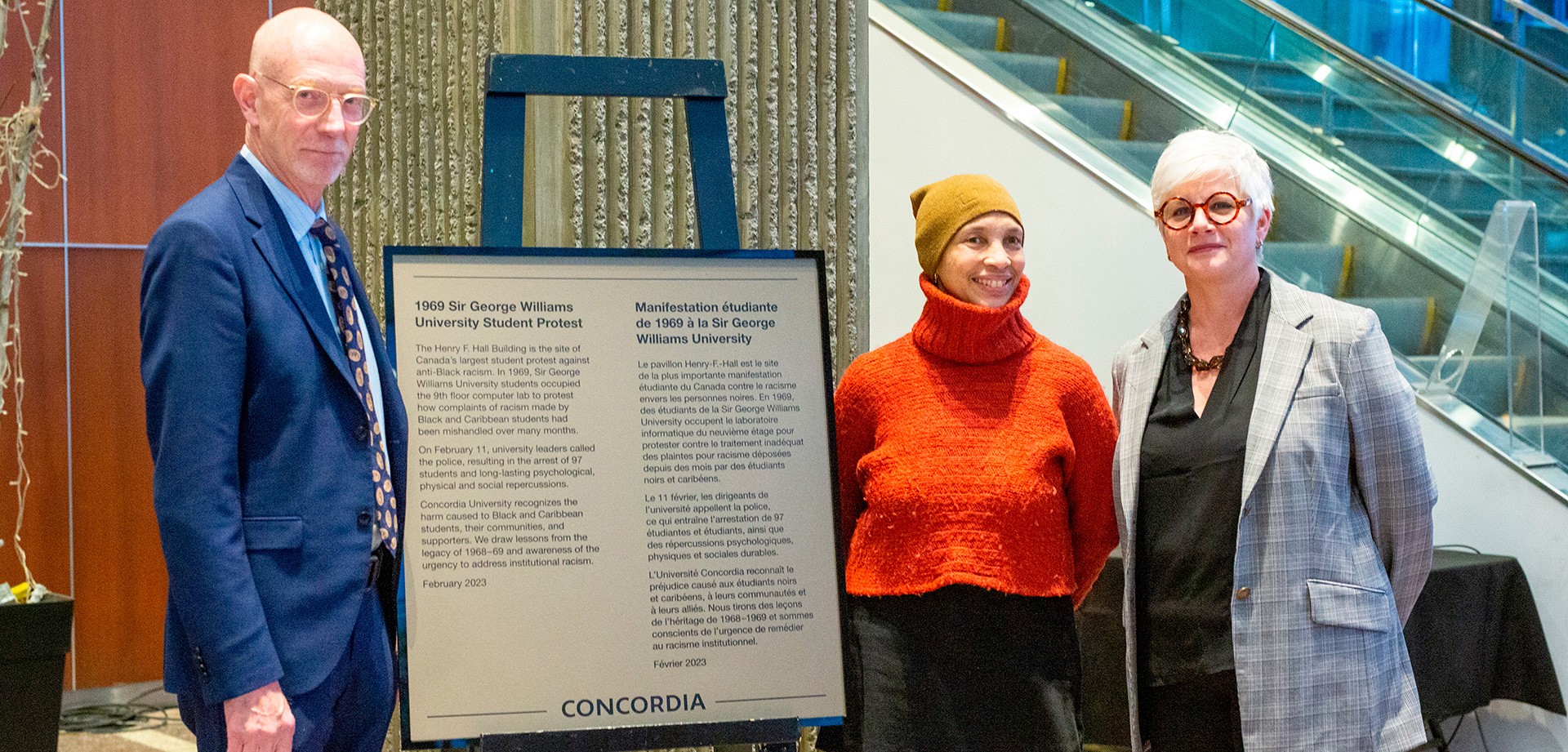 From left to right: Graham Carr, Angélique Willkie and Anne Whitelaw.
From left to right: Graham Carr, Angélique Willkie and Anne Whitelaw.
Kahnawake Survival School collaboration inspires next generation of journalists
A partnership between the Department of Journalism and Kahnawake Survival School (KSS) sought to inspire Indigenous students to consider a career in the media. The collaboration was headquartered at the department’s Institute for Inclusive, Investigative and Innovative Journalism (I3J) and steered by Kristy Snell, Concordia’s journalist-in-residence, I3J’s academic director and a member of Standing Buffalo Dakota Nation in Saskatchewan.
“KSS students came up with story ideas, did interviews, picked quotes and did the writing,” Snell says. CBC Montreal gave the finished stories a home on its website and airwaves. “Our Concordia students acted as mentors, answering questions and offering solutions and motivation.”